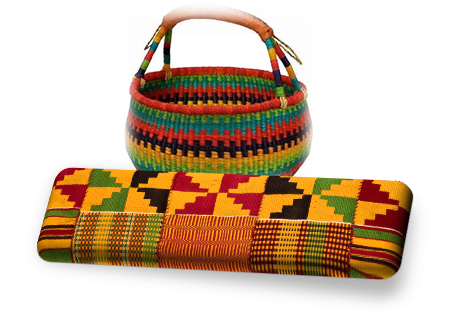Ghana Culture
"Immerse Yourself in the Rich Tapestry of Ghanaian Culture: Unveiling the Vibrant Traditions, Heritage, and Spirit of Ghana!
Ghana, a country nestled on the West African coast, boasts a rich and diverse cultural landscape that reflects the history, traditions, and values of its people. With over 100 distinct ethnic groups, each with its own unique customs and practices, Ghana is a treasure trove of cultural experiences waiting to be explored. From the rhythmic beats of traditional music to the colorful festivals that fill the calendar, Ghana’s culture is a captivating tapestry that weaves together ancient traditions and modern influences.
Traditional Music and Dance
Music and dance hold a special place in Ghanaian culture, serving as a means of communication, celebration, and storytelling. From the energetic and rhythmic movements of Adowa to the graceful and elegant steps of Kpanlogo, Ghanaian dance forms captivate both locals and visitors alike. Traditional musical instruments like the talking drums, xylophones, and the melodic kora create enchanting melodies that accompany the dances, providing a vibrant and immersive experience.
Festivals and Celebrations
Ghana is renowned for its vibrant festivals, which showcase the country’s cultural diversity and provide an opportunity for communities to come together in celebration. One of the most famous festivals is the colorful and energetic Ashanti festival, known as the Akwasidae, where the Ashanti king is honored, and ancestral traditions are preserved. Other notable festivals include Homowo, celebrated by the Ga people, and the Odwira festival of the Akan people. These festivals feature traditional attire, music, dance, and religious rituals that offer a glimpse into Ghana’s cultural heritage.
Traditional Attire and Adornments
Ghanaian traditional clothing is a reflection of the country’s rich history and identity. The vibrant Kente cloth, woven with intricate patterns and bright colors, is recognized worldwide as a symbol of Ghanaian culture. Adornments such as beads, brass, and gold jewelry hold cultural significance and are often worn during special occasions and festivals. Each ethnic group has its distinctive attire and adornments, adding to the tapestry of Ghana’s cultural diversity.
Cuisine and Gastronomy
Ghanaian cuisine is a delightful fusion of flavors, influenced by local ingredients and traditional cooking methods. Staple foods like fufu, banku, and jollof rice are accompanied by a variety of soups, stews, and sauces. The use of spices and herbs adds depth and aroma to the dishes. Visitors can savor the flavors of Ghana by trying local delicacies such as waakye, kelewele, and groundnut soup. Exploring the vibrant markets and street food stalls offers an opportunity to indulge in Ghana’s culinary delights.
Arts & Crafts
Ghana’s artistic heritage is visible in its intricate carvings, pottery, and textiles. Local artisans skillfully create sculptures, masks, and intricate beadwork that depict mythological stories, spiritual beliefs, and everyday life. The bustling markets and craft villages provide a glimpse into the creative spirit of Ghanaian artists and offer opportunities to purchase unique and authentic handmade crafts.

Ghana's culture is a vibrant mosaic of traditions, music, dance, festivals, cuisine, and craftsmanship.
OUR SERVICES
Tourism
Experience the rich cultural heritage and breathtaking landscapes of Ghana through our curated tours and travel packages.
Ghanaian Citizenship & Naturalization
Passport & Bio Data Acquisition
Commercial and Private Property Acquisition
Company Registration
Establishing a business in Ghana? We offer comprehensive support in company registration, ensuring compliance with local regulations.
School Admissions
Enroll your children in top-quality schools in Ghana with our assistance in navigating the school admission process.
Job Placement
Vehicle Purchasing and Licensing
General Consultancy
Our experienced consultants provide general advisory services, offering insights and guidance on various aspects of living and thriving in Ghana.
